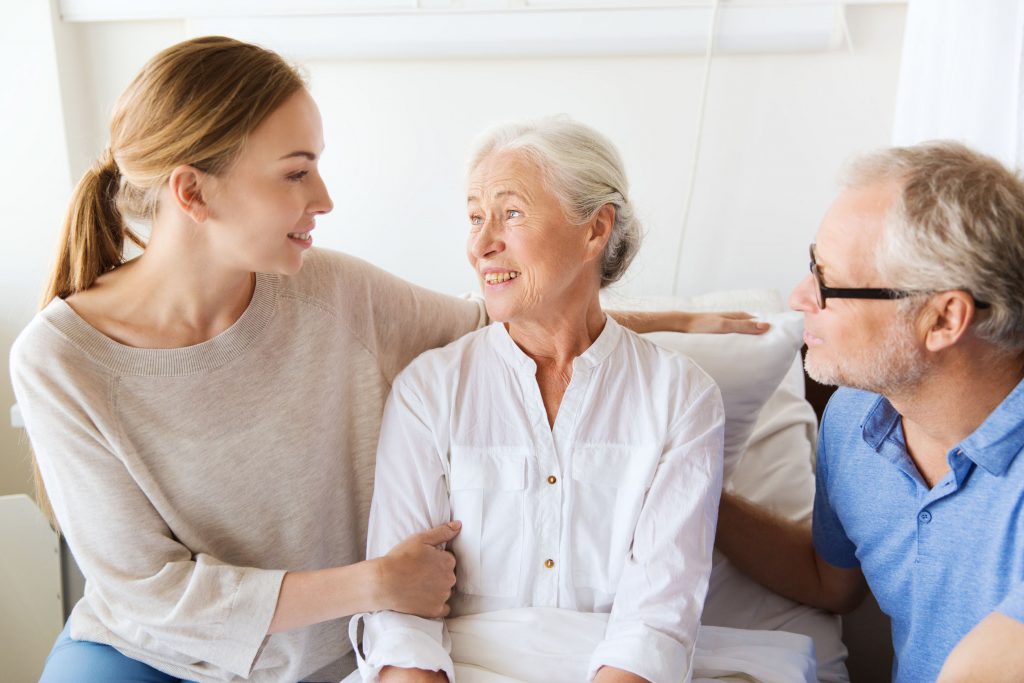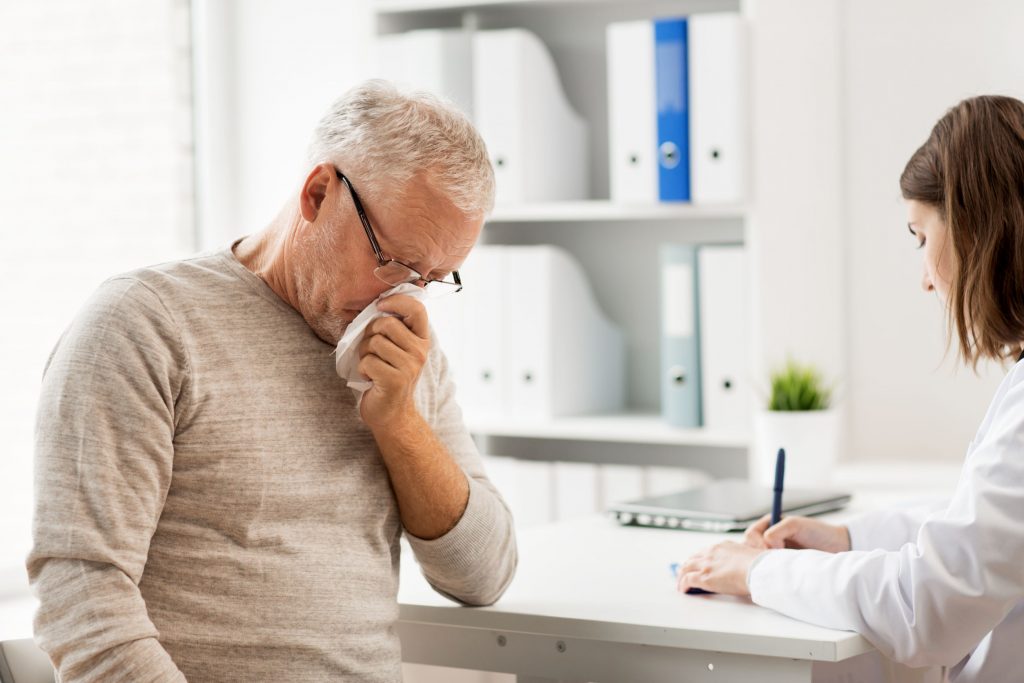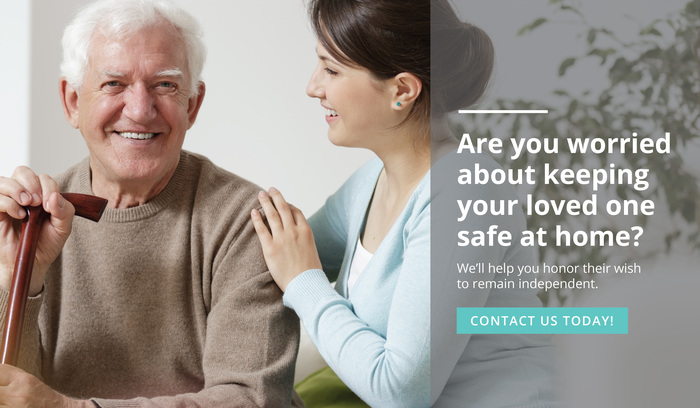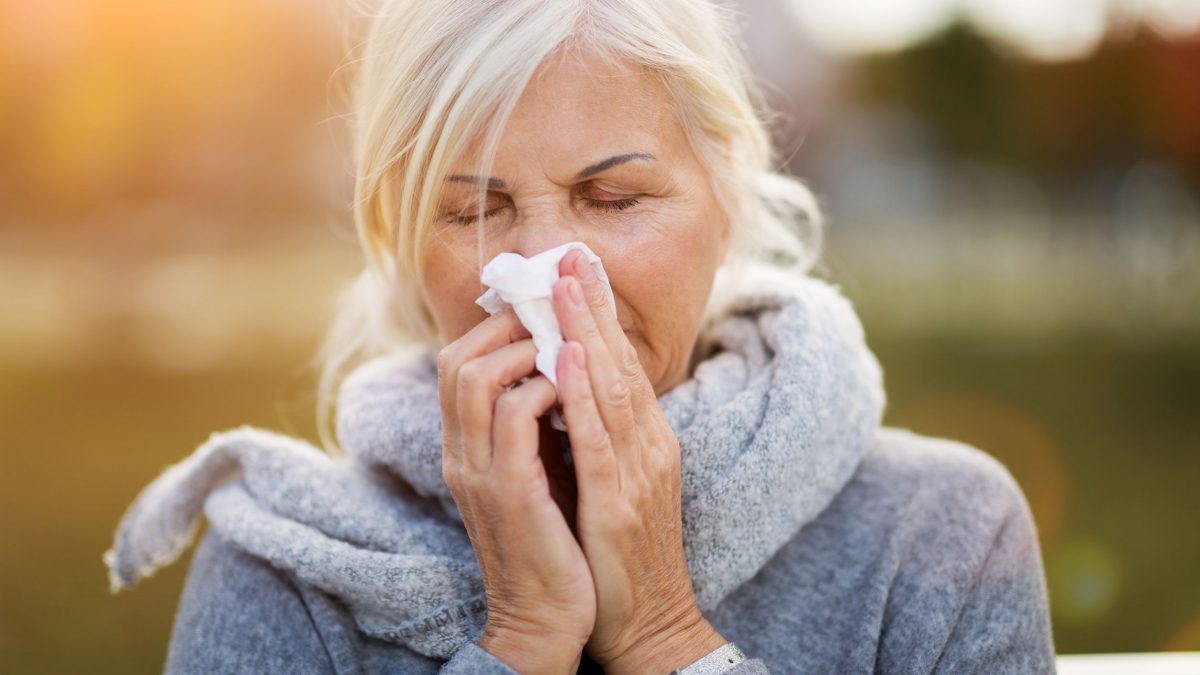Tips to Protect an Older Loved One from Viruses

Catching a virus is a nasty, uncomfortable experience no matter how old you are. For our older relatives and friends, however, the risk of getting sick is much higher than younger people in good health.
Illnesses like the flu and COVID-19 can have serious health repercussions for seniors. Each year, thousands are hospitalized with virus symptoms that have gone ignored or misdiagnosed. However, you can help the senior in your life avoid or treat illness.
Learn a few simple tips to protect an older loved one from viruses, who is at risk, symptoms to watch for, and available treatments.
How can you prevent spreading viruses to your older loved ones?
Implementing a few of the following tips in your life, and helping your loved one do the same, can protect them from the flu, COVID-19, and other viruses year-round.
- Get the flu vaccine.
- Wash your hands regularly.
- Cover your mouth when sneezing or coughing.
- Avoid contact with those who are sick.
- Eat healthy food and stay hydrated.
- Keep fully rested.
- Clean and disinfect surfaces regularly.
- Boost your immunity with Vitamin C.
- Avoid touching your eyes, nose, and mouth.
- Sanitize your computer and mobile device.
- Stay clear of crowds or unnecessary travel.
Who is at risk?

Anyone can catch a virus, but some are more susceptible than others. The following are at the highest risk of falling ill:
- Anyone over the age of 50.
- Adults and children who have chronic diseases, such as heart disease, asthma, cystic fibrosis, kidney disease, or diabetes.
- Residents in nursing homes and long-term care facilities.
- People with a weakened immune system, like those receiving chemotherapy or suffering from conditions like HIV/AIDS.
- Community members like policemen and firefighters.
- Anyone working in healthcare.
- Household members of people in this high-risk group.
How do virus symptoms manifest in seniors?
Common symptoms are fever, cough, sore throat, runny or stuffy nose, body aches, headache, chills, fatigue, and loss of taste and/or smell. However, the “expected” symptoms of viruses are not typical symptoms in older adults. This confusion leads to many overlooked and misdiagnosed flu or virus cases each year. The following are the common symptoms that seniors may experience:
- Loss of appetite
- Dizziness or a light-headed feeling
- Weakness
- Delirium
- A worsening of a chronic heart or lung condition
If you suspect your loved one may have a virus, visit your primary care physician immediately. Ignoring symptoms can lead to serious health implications like pneumonia, dehydration, or even death.
What treatments are available, and when is hospitalization necessary?

Similar to other infections, bed rest and fluids are the best treatments available for viruses. However, for those needing additional relief, your loved one’s doctor may also prescribe an antiviral to further alleviate the symptoms. Over-the-counter pain relievers like acetaminophen and ibuprofen can also help with any aches and pains.
If your loved one begins to experience any of the following symptoms, seek medical attention immediately:
- Difficulty breathing or shortness of breath
- Sudden dizziness
- Symptoms that get better, then suddenly worse
- Seizures
- Chest or abdominal pain
- Swollen mouth or throat
- Confusion
- Severe vomiting
- Worsening of chronic medical conditions
By following these tips and keeping in mind the symptoms and available treatments, you’ll be better equipped to protect an older loved on from viruses and keep them happy and healthy.
We know trying to keep your loved one away from germs can get overwhelming. If you need assistance caring for your parent or relative, there is no shame in asking for help. In-home experts can provide the necessary care and supervision to help keep your loved one virus-free. You can ensure he or she is happy, healthy, and safe while finding balance in your own life.

Safe-T Home Care is an in-home care agency in Monticello, Indiana. We provide services such as transportation, personal care, and companionship to your loved ones so they can remain safely at home and maintain as much independence as possible. For more information, please visit our website or like us on Facebook.

